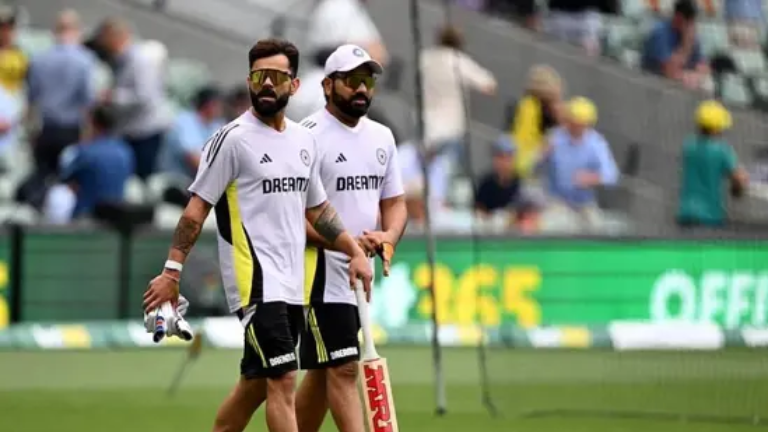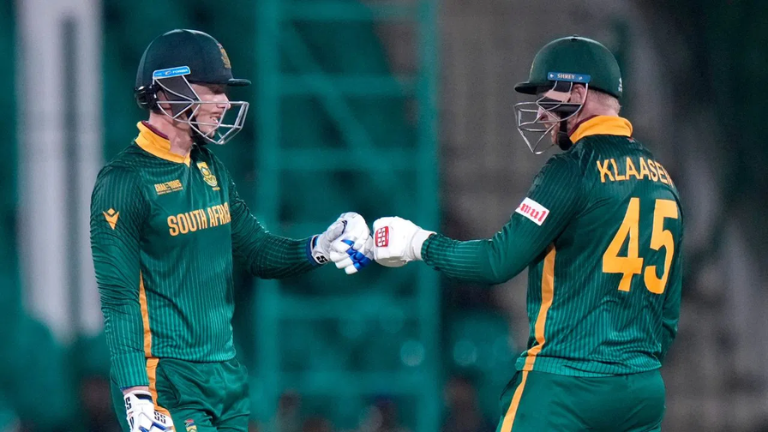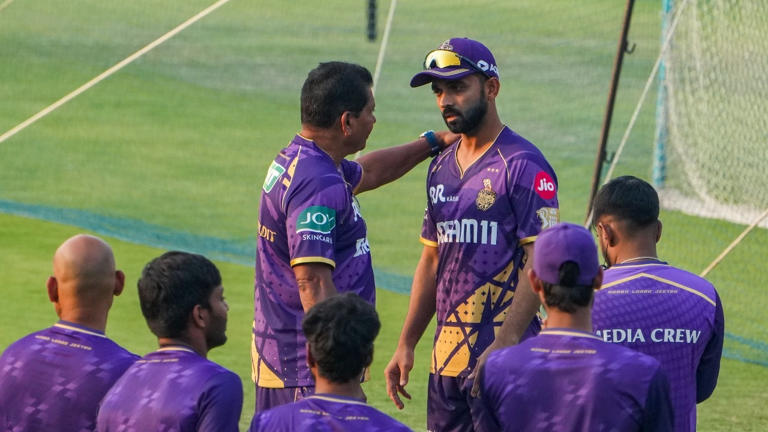BCCI’s New Family Policy for Indian Cricketers Sparks Debate
The Board of Control for Cricket in India (BCCI) recently introduced a revised BCCI family policy, limiting the presence of family members on international tours. The decision has sparked widespread debate among players and analysts.
Under the new BCCI family policy:
📌 For tours exceeding 45 days, families (including spouses and children) can only join after the first two weeks, with a 14-day limit on their stay.
📌 For shorter tours, families are allowed to stay for just a week.
This policy shift followed India’s 3-1 series defeat to Australia in the Border-Gavaskar Trophy, leading to speculation that the BCCI family policy was introduced to ensure greater focus and discipline among players. However, opinions remain divided—while some support the policy, others feel it is unnecessarily restrictive.
Mohit Sharma’s Balanced Take: “Concentrate on What We Can Control”
Amid the ongoing debate over the BCCI family policy, India and Delhi Capitals pacer Mohit Sharma provided a measured response, urging players to prioritize their focus on the game rather than dwell on matters beyond their control.
Speaking to ANI, Mohit Sharma said:
“Some things are beyond our control. While we all have personal opinions, it’s essential to focus on what we can manage. How can the presence of families be a bad thing? If something isn’t in our hands, it’s best to leave it as it is. Rather than commenting on such matters, we should concentrate on what we can control.”
His remarks suggest that, rather than getting caught up in the controversy surrounding the BCCI family policy, players should adapt and focus on their performance.
Virat Kohli’s Strong Opposition to the BCCI Family Policy
While Mohit Sharma chose a neutral stance, former India captain Virat Kohli strongly opposed the BCCI family policy, arguing that family presence plays a crucial role in a player’s mental well-being.
At the RCB Innovation Lab Indian Sports Summit ahead of IPL 2025, Kohli emphasized how family support helps cricketers stay mentally grounded.
“It is very difficult to explain to people how grounding it is to just come back to your family every time you have something intense happening on the outside,” Kohli said, as quoted by ESPNcricinfo.
The former India captain criticized the BCCI family policy, stating that many fail to understand the emotional value of family support for athletes.
“I do not think people have an understanding of what value it brings to a large extent. And I feel quite disappointed about that because it is like people who have no control over what is going on are kind of brought into conversations and put out at the forefront that, ‘Oh, maybe they need to be kept away.’”
Kohli, who has always emphasized the importance of family, believes that players should be treated as humans first, not just professionals expected to perform at all times.
Kohli on Family: A Source of Mental Well-Being
Elaborating on his opposition to the BCCI family policy, Kohli explained how spending time with family helps players detach from professional stress, allowing them to return to the game mentally refreshed.
“I want to be able to be normal. And then you can really treat your game as something that is a responsibility. You finish that responsibility, and you come back to life.”
He stressed that family presence allows players to handle pressure better, reinforcing why many cricketers oppose the BCCI family policy.
“You finish your commitment, your responsibility, and then you come back to your house, you are with family, and normal family life goes on. So, for me, that is absolutely a day of immense pleasure. And I would not miss any opportunities to go out and spend time with my family whenever I can.”
Why Did BCCI Revise Its Family Policy?
The BCCI family policy revision came in the aftermath of India’s disappointing 3-1 loss to Australia in the Border-Gavaskar Trophy. Although the BCCI has not explicitly stated the reasons, several factors might have influenced the decision:
🔹 Concerns Over Player Focus – The board might believe that limiting family distractions could help players stay fully focused on cricket.
🔹 Encouraging Team Bonding & Strategy Sessions – Reducing external influences might ensure that players spend more time together discussing match strategies rather than being with their families.
🔹 Performance-Driven Approach – With major ICC events and crucial series coming up, the BCCI family policy might be aimed at instilling more discipline in the team’s preparation.
However, these justifications have not satisfied everyone, with cricketers like Virat Kohli making a strong case for mental well-being and personal space.
Divided Opinions: What’s Best for Players?
With cricketers divided over the BCCI family policy, it raises the larger debate: What is best for players—strict discipline or personal balance?
✅ Arguments for the BCCI Family Policy:
- Ensures players remain fully focused on cricket.
- Strengthens team bonding by reducing external distractions.
- Maintains a professional approach to international tours.
❌ Arguments Against the BCCI Family Policy:
- Restricts emotional support for players during long, stressful tours.
- Ignores the mental well-being aspect of modern cricket.
- Creates an unnecessary restriction that might not have a direct impact on performance.
While Mohit Sharma advocates for accepting the policy and focusing on the game, Kohli’s perspective highlights the emotional and psychological importance of family presence.
Final Thoughts: Balancing Professionalism and Well-Being
The BCCI family policy has sparked a significant conversation in Indian cricket. While some believe that fewer distractions equal better performance, others argue that support systems are crucial for a player’s mental well-being.
Mohit Sharma’s pragmatic approach suggests that players should focus on their game and adapt to the rules, rather than questioning matters beyond their control. Meanwhile, Virat Kohli’s passionate defense of family presence highlights the human impact of such policies on cricketers’ personal lives.
At the end of the day, striking the right balance between professionalism and mental well-being is key. Whether the BCCI revisits its decision in the future remains to be seen, but for now, cricketers will have to adjust to the new norm while keeping their focus on what truly matters—winning games for India.




